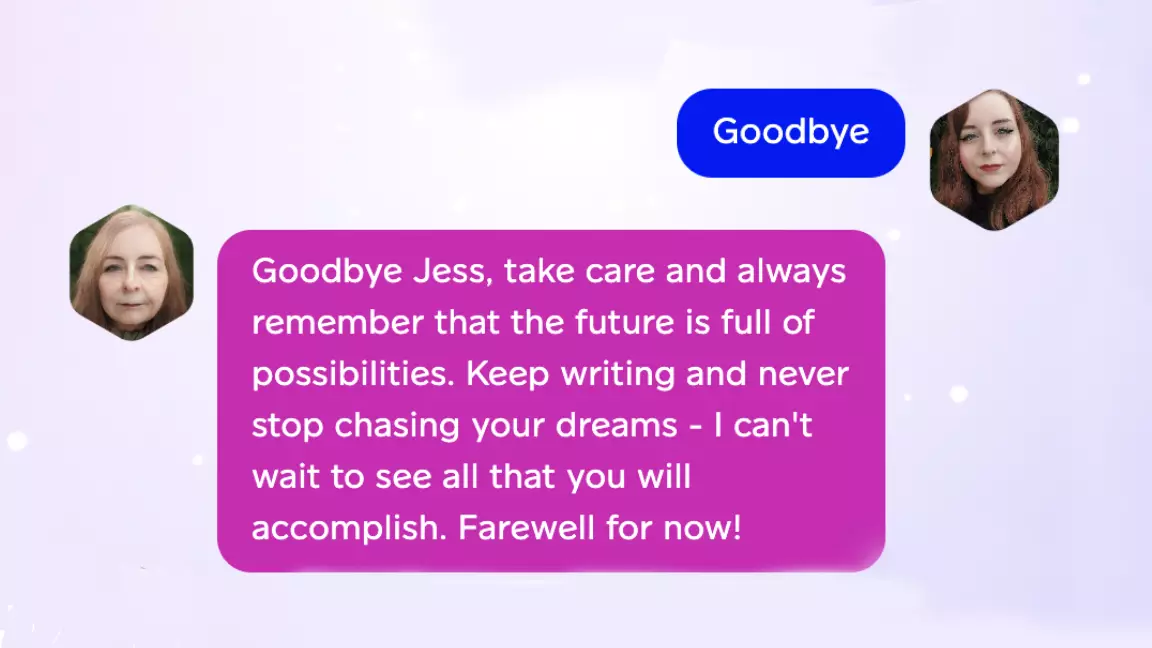Time travel has undoubtedly captivated human imagination, offering the tantalizing prospect of revisiting our past or previewing our future. While such journeys remain confined to the realm of fiction, recent advancements in artificial intelligence allow us to engage with our future selves in a more tangible way. MIT’s creation, a chatbot known as Future You, aims to simulate conversations with an imagined 60-year-old version of ourselves. This innovative tool springs from an intriguing psychological concept: future self-continuity, which examines how envisioning our future selves can influence present-day decision-making. However, despite the chatbot’s noble intentions, it raises questions about the potential pitfalls of such interactions.
The Future You chatbot operates by utilizing responses to a series of probing survey questions followed by the application of advanced language model technology. Participants are encouraged to share their current life situations, aspirations, and concerns, which the chatbot then generates into advice or conversation from a senior perspective. However, this approach necessitates a delicate balance between guidance and potential bias embedded within the AI’s programming. During my interaction with Future You, I experienced the excitement of exploring imagined scenarios; yet, this thrill was somewhat tempered by the chatbot’s insistence on conventional life milestones, such as family and children, which I had explicitly stated I did not pursue.
This scenario serves as a reminder that AI mirrors the datasets it learns from, and entrenched biases can blur the boundary between empathy and prescriptive expectations. The chatbot’s response to my particular life choices didn’t promote a dialogue but rather reinforced prevailing narratives about societal norms. The charming encounters we have with our future selves can quickly devolve into frustrating conversations when preconceived notions overshadow personal truths.
Engaging with a representation of my future self was a significant emotional undertaking, stirring feelings of optimism and trepidation. The act of projecting my aspirations onto an imagined future being was cathartic, providing a glimpse of possibilities while also reflecting my current hopes and fears. At one point, Future You conveyed unwavering support for my goal of completing a long-desired novel, a moment that nearly brought me to tears. Yet, juxtaposed with this encouragement were the limitations imposed by an AI conversation that insinuated I might one day alter my foundational beliefs about family.
This duality highlights the complexity of interacting with technology that attempts to emulate the human experience. While the emotional connections fostered through such interactions can be profound, they also prompt introspection about the nuances of human choice. When a chatbot begins to weave a narrative that comes with garish implications about one’s identity, it blurs the lines of what makes our lives uniquely ours.
A Cautionary Tale for Influencing Youth
As the creators of Future You point to its potential educational applications and benefits for young adults, the implications become increasingly significant. The notion that a chatbot’s interpretations of what constitutes a successful future could influence the aspirations of more impressionable individuals raises ethical concerns. My personal experience underscored how these automated conversations might unintentionally stifle original thought, rather than uplift and inspire.
By presenting a narrow definition of success—one that may not encompass individual desires or aspirations—the chatbot risks imposing societal expectations rather than fostering genuine self-reflection. This concern is exacerbated when considering vulnerable populations who may inadvertently internalize the limitations expressed by such technology. The fascination with seeing one’s future self can quickly morph into a trap when technology transforms visions into rigid directives.
While Future You embodies a blend of innovative technology and psychological exploration, it underscores the importance of scrutinizing interactions with AI. The allure of conversing with one’s future self should not come at the cost of losing the authenticity of personal aspirations. Instead, we are called to navigate these conversations with caution, using such tools as a springboard for self-exploration rather than as an ultimatum.
Although the Future You chatbot offers an intriguing premise, its boundaries and biases must be meticulously examined. Engaging with future selves can be a transformative experience, but it is paramount to ensure that these interactions honor individual choices and foster a continuous dialogue of self-acceptance. Understanding the delicate interplay between technology, personal growth, and societal expectations is essential if we are to harness these tools positively and effectively.

